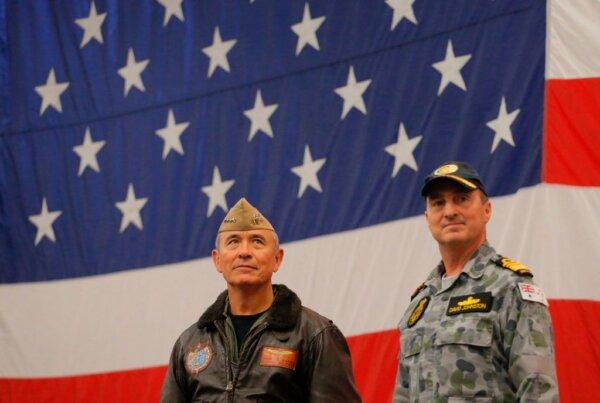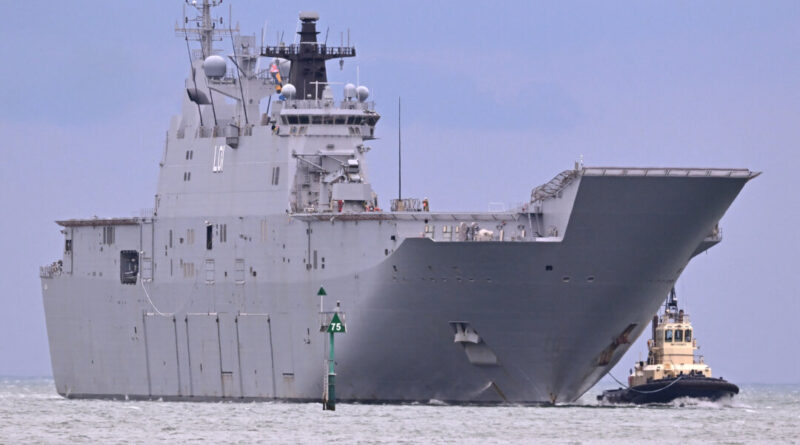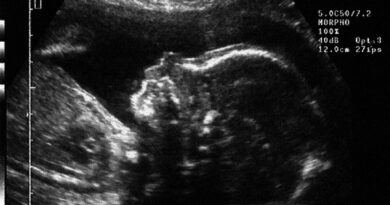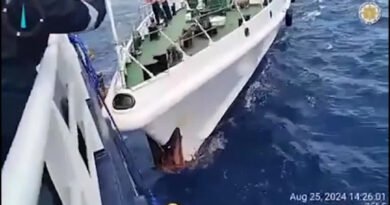Australia Names a New Head of the Defence Force
Australia has named Vice-Admiral David Johnston as the new chief of the Defence Force from July 2024, subject to approval from the governor general.
He replaces retiring chief General Angus Campbell, who has been serving the Australian Defence Force (ADF) since 1981.
Mr. Johnston, a naval officer, has been serving as vice chief of the Defence Force since 2018 after joining the ADF in 1978.
Air Marshal Robert Chipman will now take on the role of vice chief of the Defence Force, having served as chief of the Air Force since July 2022. Air Vice-Marshal Stephen Chappell will be promoted to chief of the Air Force.
Prime Minister Anthony Albanese highlighted choosing Mr. Johnston as the new head had been “easy” given his experience, during a press conference on April 9.
“It is because of his experience, not just as a naval officer, but as a deputy. It is in my view, an easy decision,” Mr. Albanese told reporters.
He said Mr. Johnston’s service career has spanned a period of profound change in Australia’s defence force and involved in the “very nature of the challenges confronting our national security.”
Mr. Johnston thanked the prime minister and deputy prime minister for the nomination and opportunity to serve as the Chief of Defence Force.
“I am very conscious of the responsibility that comes with the role, the strategic environment in which we face ourselves, and most particularly the responsibility I have to the extraordinary men and women in the Australian Defence Force and the families who support them,” he said.
Mr. Albanese congratulated all personnel for leading the ADF with the values and tenets the Australian public expected of military leaders.
“I look forward to working with you to plan and deliver a more integrated and focused Defence Force,” he said.
“I’d personally like to thank General Campbell for his service over many years. General Campbell has served our nation with great distinction, during a period of significant strategic change and cultural reform.”

Meanwhile, Deputy Prime Minister Richard Marles said it was an honour to announce these senior appointments who will lead the ADF during a period of increasing strategic competition.
“I’d like to thank General Campbell who has been a pivotal defence leader through thoughtful, necessary and difficult change. He oversaw the drawdown of Australian troops in the Middle East region and reorientation of our military focus to the Indo-Pacific,” Mr. Marles said.
“He has been a strong advocate for operational accountability, strengthening our alliance and regional relationships, supporting the wellbeing of ADF personnel and maximising the power and effectiveness of an integrated force.
“I thank General Campbell, and all outgoing senior ADF leaders, for their service to our nation. I also want to acknowledge their families, and thank them for their commitment and their sacrifice.”
AUKUS Partners Considering Working With Japan
Meanwhile, AUKUS defence ministers Richard Marles, Grant Shapps, and Lloyd Austin released a joint statement on April 8 confirming they are considering working with Japan on pillar II projects within AUKUS.
The defence ministers also confirmed they are committed to pushing forward with Australia’s acquisition of armed nuclear powered submarines.





